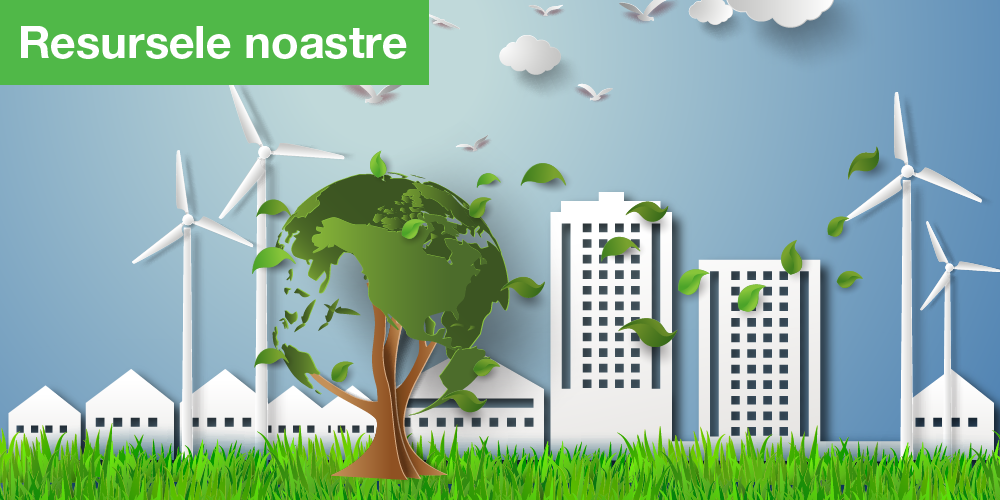Our resources
Type: Middle School
Recommended for 5th and 6th grades
The entire economic system is based on how people use the resources at their disposal. Students learn what the main types of resources are and how they use them responsibly and efficiently in life and in the business world.
PROGRAM OBJECTIVE
The Our resources module creates contexts in which students are challenged to find sustainable development solutions from the perspective of citizens, community associations or companies. They learn what it means to be environmentally responsible and how to develop initiative and civic behavior.
EDUCATIONAL CONTENT
The Our resources module provides classroom activities in the form of an optional or extracurricular subject, using a kit of educational materials which includes:
- teacher’s guide;
- student’s workbook;
- auxiliary materials for the Resources game
There are eight topics in the module, which students work through under the guidance of their teachers and volunteers from the business community.
SKILLS DEVELOPED
• Critical listening • Research • Compiling and interpreting data • Creating graphs • Identifying resources • Mathematical interpretation of data • Locating resources • Teamwork • Generating reports • Problem solving
ACTIVITY LIST
- Environment
Students analyze the environment from the perspective of resources: What resources do we use in our daily lives? What resources do the companies in our area use? Are these resources easily renewable? How can we ensure a sustainable development? - Waste
Students understand that in order to function, a community relies on resources such as water, light, fuel, food, machinery, etc. However, their use can create problems for the environment (wastewater, pollution, landfills, etc.). The participants analyze different types of waste and discover ways to recover and reintroduce waste in the economic circuit. - Collect and research
Students take part in a field activity and work in teams to identify the types of waste commonly found in a community and to learn about what selective collection means. They analyze the types of waste in terms of the quantity collected, determine possible causes and effects of environmental degradation and find solutions to reduce it. - Environmentally friendly companies
Students discover what can a company do to become environmentally responsible (use natural resources more carefully, pack their products in recyclable materials, run recycling campaigns in the community, etc.). - Social actors
Students learn that, in addition to the companies, there are other factors that must also act environmentally responsible: researchers, businesspeople, politicians, associations, non-governmental organizations, etc. - Creating an association
Students understand the role of an association and go through the basic steps of setting up such an entity while answering questions such as: What problem led us to become an association? What will the mission of our association be? What will we do to fulfill our mission? - Reduce, reuse, recycle
Students play a board game in which they observe different examples of responsible behavior or environmental protection rules violation and learn about responsible citizenship, clean cities and harmless social actors. - Protecting resources
Starting from examples of companies that have adopted various measures to protect the environment, students determine the types of resources that can be protected and are challenged to draw their own conclusions about the course.
“Students understood the importance of preserving the environment for themselves and for future generations. They realized how many things they can reuse and transform for the benefit of themselves and their families. Even their chalk container was cut from a bottle of fabric softener. They have also started to urge their parents to save money on water, electricity and gas and are more careful about how waste is disposed of in their village.“ – Teacher, Strejnicu Middle School, Prahova

